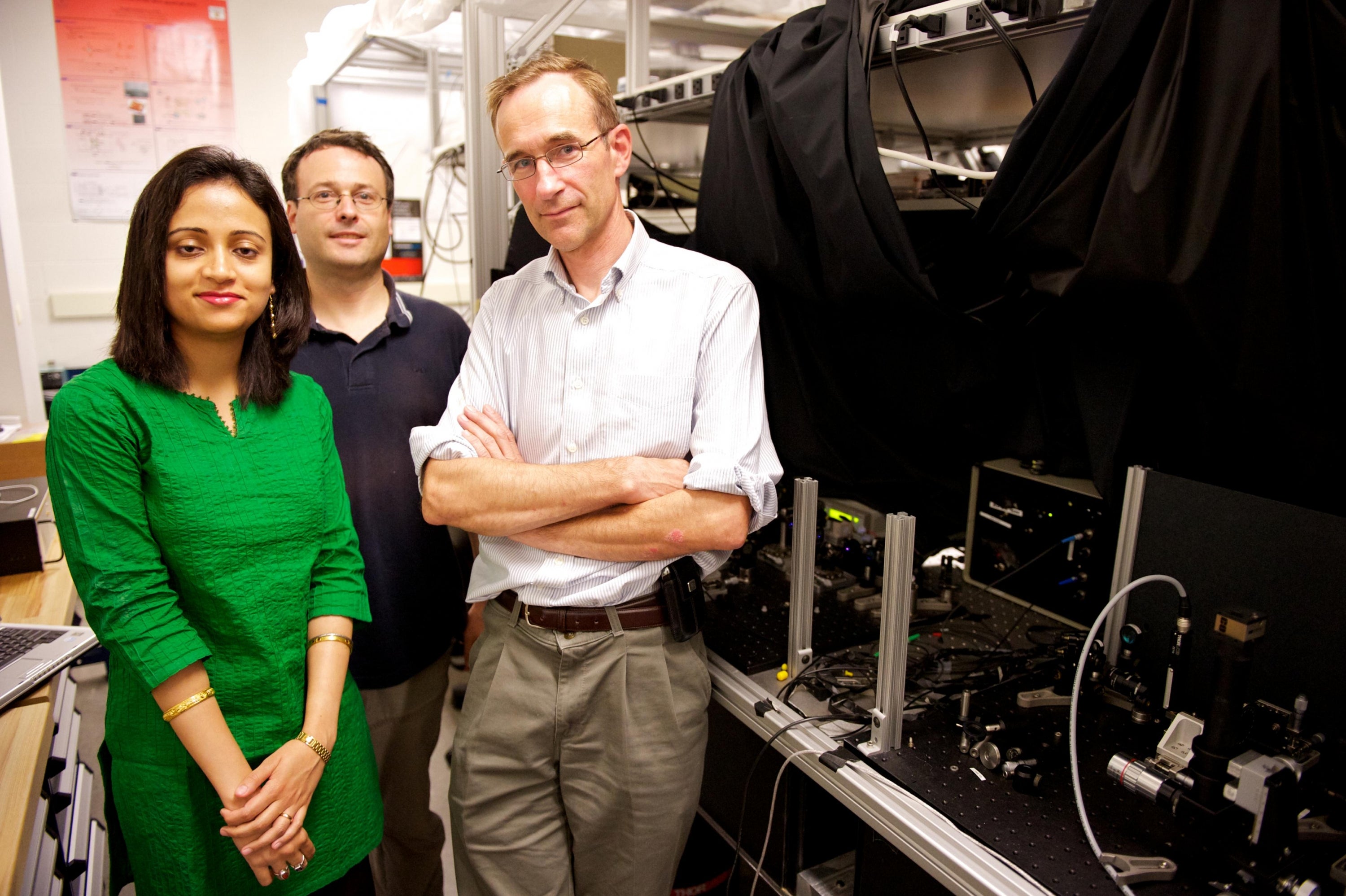
Born’s rule, which gives the probability that a measurement on a quantum system will yield a given result, is widely assumed to always hold true.
This assumption is what led physicist W.H. Zurek to remark: “If Born’s rule fails, everything goes to hell.”
Sinha and her IQC colleagues sought to find out if everything could indeed go to hell.
They devised a variation to the famous “double-slit” experiment, which has long been used to demonstrate the counterintuitive laws of quantum mechanics (and was named by the New York Times as “the most beautiful experiment” in science).
Sinha’s team created a “triple-slit experiment” to test the fundamental postulates of quantum mechanics, on which other applied research is based.
The research was inspired in part by IQC Director Raymond Laflamme, who stressed the fundamental importance of the experiment as part of the ongoing quest for a unified theory of quantum mechanics and gravity.
If the photons in the triple-slit experiment demonstrated any unexpected results, it would mean quantum mechanics is only approximate, just as the double-slit experiment demonstrated that classical physics is only an approximation to the true law of nature.
Even a small violation of Born’s rule would indicate that quantum mechanics is merely approximate, and would change physics as we know it. This would imply even more generalized versions of quantum mechanics, thus even leading to new ideas such as “super quantum computing.”
The researchers discovered no such violation, however, allowing them to put a bound on expectations of quantum mechanics.
This result affirms quantum mechanics as a pillar of modern physics and opens up new avenues for exploring the fundamentals of quantum mechanics. Such fundamental research will be essential in the development of a unified theory of quantum mechanics and gravitation.
Read the whole article, “Ruling out Multi-Order Interference in Quantum Mechanics,” at Science online.
Read the Indian Telegraph's article on Sinha and the experiment here.
Founded in 2002, the mission of the Institute for Quantum Computing (IQC) is to aggressively explore and advance the application of quantum mechanical systems to a vast array of relevant information processing techniques.
A part of the University of Waterloo, Waterloo, Ont., Canada, IQC creates a truly unique environment fostering cutting-edge research and collaboration between researchers in the areas of computer, engineering, mathematical and physical sciences.
At the time of this release, IQC has 17 faculty members, 22 postdoctoral fellows and over 55 students and research assistants, as well as a support staff of 18.
The Institute for Quantum Computing acknowledges the support of the Government of Canada through Industry Canada and the Government of Ontario through the Ministry of Research and Innovation.